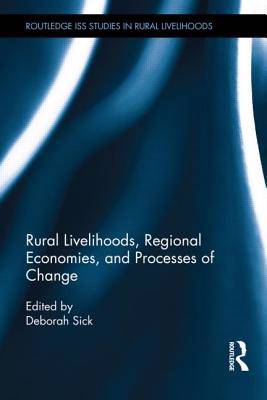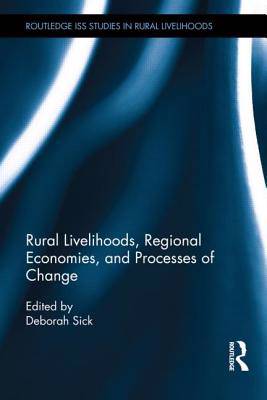
- Retrait gratuit dans votre magasin Club
- 7.000.000 titres dans notre catalogue
- Payer en toute sécurité
- Toujours un magasin près de chez vous
- Retrait gratuit dans votre magasin Club
- 7.000.000 titres dans notre catalogue
- Payer en toute sécurité
- Toujours un magasin près de chez vous
Rural Livelihoods, Regional Economies, and Processes of Change
Description
For centuries, new technologies and expanding networks of production and consumption have been changing the face of rural economies in significant ways. Millions of rural dwellers have found survival increasingly difficult and have fled to urban centres. Others have remained: some retrenching, struggling to just subsist, others attempting to innovatively redefine their place within 'new' rural economies.
Over the past 30 years, rural economies have largely been ignored by policy makers, but recent growing concerns about food security, environmental degradation, climate change, continued rural poverty, and high rates of out-migration have sparked renewed interest in rural regions. Covering a range of geographical and socio-cultural contexts, the case studies in this book draw on actor-oriented in-depth field studies, which provide detailed, locally focused perspectives on the nature of rural livelihoods today. The collection highlights the ways in which rural livelihoods are being redefined, the multiple ways in which rural dwellers draw on distinct social, cultural and environmental resources to formulate their livelihood strategies, and the factors which facilitate or limit their abilities to do so.
This volume will be of interest to development practitioners and policy makers, and scholars working in rural development and economic anthropology.
Spécifications
Parties prenantes
- Editeur:
Contenu
- Nombre de pages :
- 216
- Langue:
- Anglais
- Collection :
- Tome:
- n° 11
Caractéristiques
- EAN:
- 9780415870856
- Date de parution :
- 16-01-14
- Format:
- Livre relié
- Format numérique:
- Genaaid
- Dimensions :
- 157 mm x 236 mm
- Poids :
- 476 g






